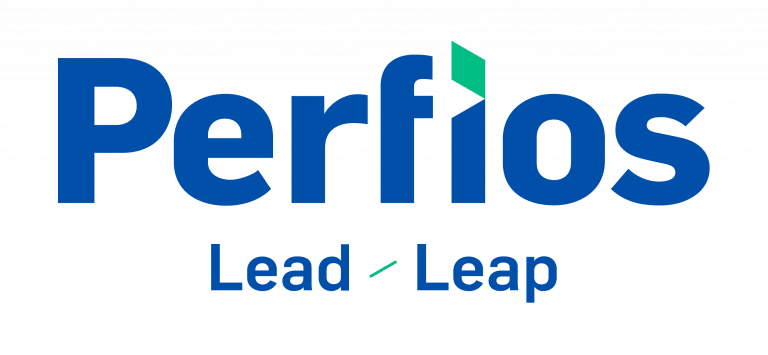Ever wondered what the future of finance holds? Imagine a world where every transaction feels simple, convenient & secure. That’s the promise of embedded finance, where financial services seamlessly blend into everyday transactions, reshaping how we manage money.
In India, this exciting field is growing rapidly, with predictions suggesting a massive jump from $4.8 billion in 2022 to a whopping $21.12 billion by 2029. Embedded finance, a concept gaining rapid momentum promises a seamless integration of financial services into non-financial platforms changing how transactions are conducted and user experiences alike. As projections soar and revenues surge within the Indian Embedded Finance ecosystem reaching staggering heights propelled by a compound annual growth rate (CAGR) of 30.4% from 2022 to 2029, the allure of this burgeoning sector becomes undeniable.
The numbers tell a clear story: embedded finance is on the rise.Yet, amidst the allure lies a pressing concern- finding the middle ground between innovation, compliance and security, throwing the spotlight on ensuring sensitive data is safe.
Explore the top 5 use cases of Embedded Finance:
1. Embedded Payments: Streamlining transactions with seamless online payment options at points of consumption.
2. Embedded Insurance: Enjoying real-time insurance bundling for tailored coverage wherever you go.
3. Embedded Investments: Accessing a world of financial opportunities with API-based integrations into investment platforms.
4. Embedded Cards: Simplifying transactions with virtual cards-as-a-service offerings for ultimate convenience.
5. Embedded Lending: Gaining financial flexibility with Buy Now, Pay Later options at the point of purchase.
Why is there a balancing act required between Embedded Finance and Data Privacy & Security?
In the realm of embedded finance, Ananya, a small business owner specializing in resin art, seeks to expand her enterprise by securing a loan through an integrated platform. Embedded finance offers Ananya swift access to financial resources, but not without considerations. Balancing data privacy, security, and transparency is paramount.
Ananya’s chosen platform prioritizes transparency, providing clear insights into data usage and protection. However, achieving this transparency entails navigating complex regulatory landscapes. Let us have a look at what the process may look like in the exploration below!
Ananya’s quest for a loan unfolds within a digital ecosystem with multifarious touchpoints, spanning across NBFCs, SaaS providers, and borrowers. However, the addition of various touch points also heightens data security risks.Enter the Account Aggregator (AA) framework, a cornerstone of India Stack, designed to address these challenges by weaving the concept of “privacy by design” into the system. This framework empowers borrowers like Ananya to share consent-driven data across various financial domains, enabling a holistic view for lenders and facilitating better provision of financial services.
Crucially, the AA framework ensures that data isn’t stored within its network, and customers retain the right to withdraw consent at any time. This approach not only mitigates the risk of unauthorized data sharing but also safeguards against privacy violations, offering consumers like Ananya assurance and control over their information.
Consumer trust is pivotal. As embedded finance proliferates, transparency and robust security measures become linchpins in fostering trust. Ananya’s seamless journey underscores the transformative potential of embedded finance for small businesses, while emphasizing the need for nuanced considerations to uphold privacy, security, and trust in this evolving landscape.
A Timeline of Regulatory Practices in India for Embedded Finance:
Regulatory developments in India have been pivotal in shaping the landscape of digital lending and data protection. In 2020, the RBI took proactive steps by issuing guidelines for ‘loans sourced by banks and NBFCs over digital lending platforms.’ These guidelines unequivocally place the onus on lenders to adhere to fair practices when operating through digital platforms, ensuring a level playing field for borrowers.
Fast forward to 2023, the Digital Personal Data Protection Bill (DPDPB) was enacted, marking a significant milestone in India’s journey toward robust data protection. The DPDPB not only elucidates the obligations of intermediaries handling data but also places importance on the rights of individuals concerning their personal data. Its overarching objectives include safeguarding privacy, specifying the flow and usage of personal data, and fostering a relationship of trust between entities processing such data and the individuals concerned.
Despite these commendable strides, a notable gap persists in the regulatory framework pertaining to the FinTech and Embedded Finance sectors. Unlike digital lending and data protection, there are no separate legislations tailored explicitly for these burgeoning domains. This regulatory vacuum underscores the need for targeted legislation to address the unique challenges and opportunities presented by FinTech and Embedded Finance, ensuring that they operate within a clear and robust regulatory framework.
Why is transparency & data privacy an overarching factor behind business success?
1. Build Trust: When businesses openly share how they handle customer data, it makes customers feel secure and builds trust leading to stronger relationships and positive recommendations.
2. Stay Ahead: Prioritizing transparent data privacy helps lenders stand out in a privacy-conscious world, attracting customers who value their data and setting them apart from competitors.
3. Keep Customers Happy: By showing respect for customer data, businesses keep customers happy and loyal, leading to better satisfaction and fewer customers leaving.
4. Stay Safe from Legal Hassle: Following transparent data privacy practices reduces the risk of legal trouble and damage to reputation by obeying rules, avoiding data breaches, and earning a good reputation.
5. Innovate for Customers: Listening to customers’ privacy concerns helps businesses improve their products or services, showing they care and driving innovation keeping their customers requirements in focus.
Ready to dive into the world of transparent data privacy and steer your business toward success? Reach out to us today and let our expert team guide you through the maze of data protection. Together, we’ll help you build a system to not only comply with regulations but also resonate with your customers, building a rock-solid reputation along the way.
Don’t settle for the ordinary—choose Perfios and let our expert team tailor transparent data privacy solutions that fit seamlessly into your operations.
About Perfios:
Perfios Software Solutions is India’s largest SaaS-based B2B fintech software company enabling 1000+ FIs to take informed decisions in real-time. Headquartered in mumbai, India, Perfios specializes in real-time credit decisioning, analytics, onboarding automation, due diligence, monitoring, litigation automation, and more.
Perfios’ core data platform has been built to aggregate and analyze both structured and unstructured data and provide vertical solutions combining both consented and public data for the BFSI space catering to their stringent Scale Performance, Security, and other SLA requirements.
You can write to us at connect@perfios.com














